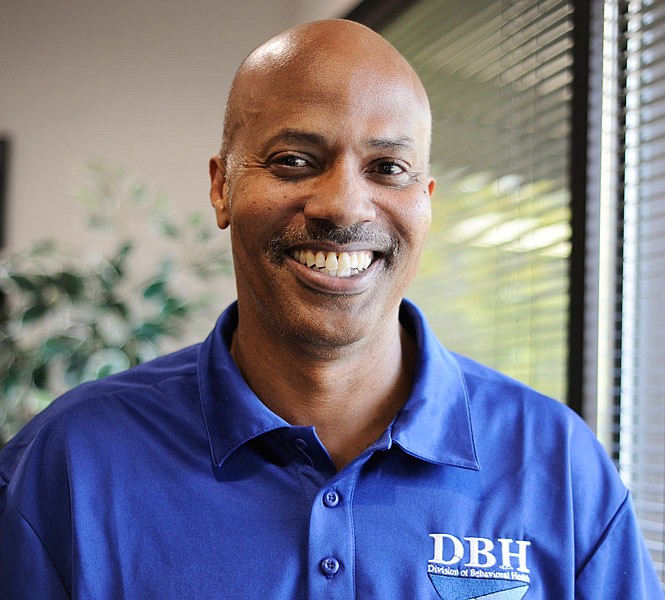For more than a decade, Edwin Cooper, affordable housing consultant at the Missouri Department of Mental Health, has helped mold programs geared toward establishing a balance of care among homeless and disabled populations across the state.
"When I started with DMH, the state was just signing the grant for the continuum of care because in 1997-98, the state did not have a Balance of State Continuum of Care," Cooper said.
Missouri's Balance of State Continuum of Care connects counties across the state to help address homelessness, he explained.
Originally from the Bootheel, Cooper came to Mid-Missouri to pursue a bachelor's degree in agriculture at Lincoln University. After graduating from LU, he took a job as an agriculture teacher assistant at a prison through State Technical College of Missouri, formerly known as Linn State Technical College.
Later he continued his education at Southeast Missouri State University, where he obtained his master's degree in public administration.
After college, Cooper managed to stick true to his passion in agriculture through extensive work with the state Department of Agriculture and the LU Extension, where he worked with socially disadvantage farmers. Later, he worked for the U.S. Department of Agriculture in Boston, Massachusetts, and eventually came back home to work with farmers in Missouri who had limited resources through the University of Missouri Extension.
Cooper also spent time at the state Department of Economic Development before taking on his current position at the Department of Mental Health, where he has spent the last 18 years.
"To me, this isn't work. I love what I do," Cooper said. "With no social service or mental health background, I recognize my path to DMH was a lot different."
In his role as affordable housing consultant, Cooper works with faith-based organizations, mental health providers and communities across the state to put housing development projects in place for homeless people and those with disabilities.
Locally, Cooper serves as co-chair of the third annual Project Homeless Connect health fair; is a member of the Jefferson City Homeless Taskforce, which meets quarterly; and facilitates the Point in Time Count for the unsheltered homeless population.
"I became most excited when Jefferson City became interested in programs like this because there are similar programs offered in Kansas City, Columbia, Sedalia and Warrensburg. One of the things we're trying to do is eliminate homelessness in Jefferson City, so without this research we wouldn't have known where to start," he said, referring to the PITC.
Outside of work, Cooper is vice president of the Alpha Phi Alpha Beta Theta Lambda chapter and a member of Quinn Chapel A.M.E. Church.
"What I bring to the state government is the experience of working with various small rural communities, small-business owners, limited-resource farmers - these roles really shaped what I do today," he said. "My advice to young professionals is to stay true to what you are; you never know where your career path is going to take you."

